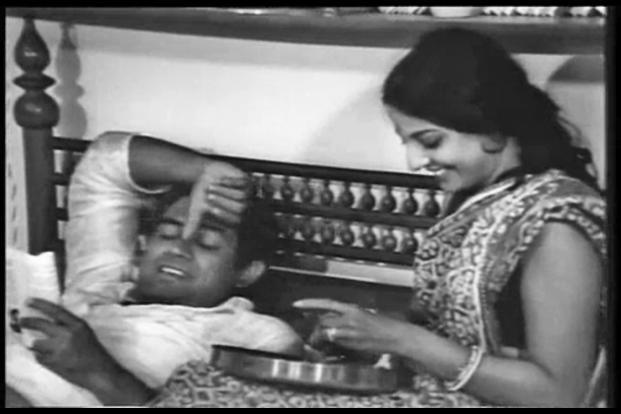
It was an idle afternoon when this tweet by one of my friends appeared on my Twitter feed: “even if someone yells at me in urdu i’ll think they are expressing their deepest affection for me and wag my tail.”
I quote-tweeted it with this line: “This is how I accidentally got married.”
For a while, it seemed to amuse many people and I kept receiving notifications about it in the mentions tab. “You are all laughing and I am dealing with a lover who talks to everyone else also in the same way,” I tweeted in response a while later. I was remembering how I used to feel that no one had spoken so gently to me before, only to discover later that this man I was in love with was even more mellow with others.
I used to imagine that one of the great intimacies of living together would be having quiet pockets of time in which we would be together, silent and reading our own books separately. I don’t know how I became manic after marriage, but I rarely find the stillness in my own head to be able to be with my husband and do nothing together. If he is quiet and peaceful, I feel like a child who must get his attention somehow. Or find myself a new game to play. Having three children and a smartphone can make one forever busy, I’ll confess.
From Hindi movies, I had internalised other aspirations of domestic togetherness. Like the scene in which it is discovered that the man has a button missing in his shirt just when he is ready to leave for work. The woman steps in to deftly sew on a button while he is still wearing his shirt. She moves her face close to his chest to cut off the thread with her teeth, because real women don’t use scissors.
Unmoved by my romantic yearnings, my husband’s shirt buttons have remained steadfast and immotile over the years. But there have been other substitutes. He travels frequently and unexpectedly, but I am the one with all the travel apps and internet suaveness. Once he called me well past midnight from a highway in Bihar to ask me to book a hotel room for him in Sasaram. We were 1,000km away from each other, he was driving through the night, but for the next few hours we were together. Booking tickets and hotel rooms for a finicky Luddite has become the sewing of shirt buttons between us. In return, he accompanies me to places where I am dying to go, but my social anxiety has convinced me that I will die if I go alone.
For a while now, I have been invested in noticing the unique terms of endearment that characterise individual relationships. What are some of the non-verbal, non-physical ways in which couples begin to connect with each other? Intimacies that are so subtle that they are almost invisible and often hidden in plain sight?
I stayed with my uncle and aunt recently and noticed how their companionship was reflected in their daily puja routine. When she is pouring oil into the lamp, she needs his presence to prepare the wick. He holds the prayer book open as she reads out the verses. From a distance, one can see them instructing each other to do what is so routine for them, you wonder why they are speaking at all. They close their eyes together and go silent, probably praying for the same thing. Their temple room is full of images of deities but they seem like they are in communion with each other.
In our own life, after almost two decades of knowing each other, it is easier to make a list of annoyances than it is to verbalise the little affections that hold us together. It is also true that it is more socially acceptable to talk about irritations. Calling love by its name embarrasses us, almost as if it may still be bad manners to do so in public.
Another one of the secret intimacies in my own relationship is making plans. Like any other naïve newcomer, I had started out believing that plans are made to be implemented. They are merely a first step towards the real thing.
I’ve found out now that making plans is an end in itself. Together we make plans to move cities, enrol in higher education courses, start new ventures, and I dutifully write them down in a timeline in our common diary. We research costs and make budgets. He insists I note all the details. The short-term planning goes into the front pages of the diary and the long-term projects are listed in the back pages. Years later we reread some of the words and laugh uproariously. Then we make adjustments in the timeline.
Experience shows me that dreaming is more important than doing. It is certainly more fun and less disruptive. Everyday life takes care of the necessity of doing things anyway.
Similarly, small intimacies are safer than the big, demanding ones. Because they are barely visible to others, there is less need to guard them against envy, mockery and other accidental assaults.
Sometimes I am afraid of too much intimacy. Too much truth-telling and baring of the tender parts of our backstory make us vulnerable to each other too. It isn’t always necessary to punch a hole in the narrative that sustains the other. There is a reason we have evolved our unique world view in the first place. It holds us together when we are at risk of being overwhelmed by despair or breaking down. Just like the safety net of small, everyday familiarities. I guess we can call them love after all.
This article was originally published here.